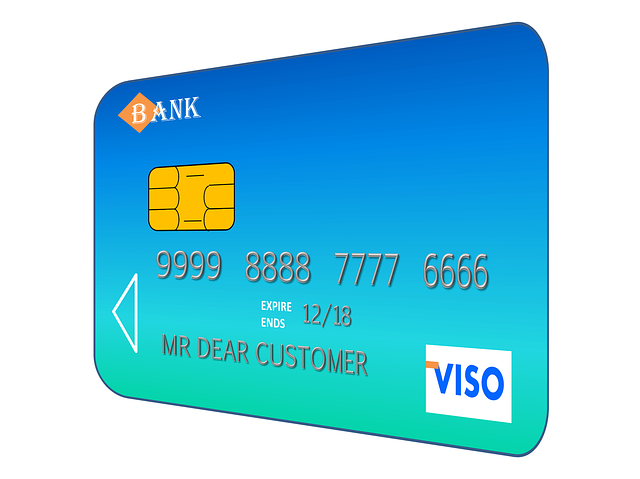Debt consolidation loans combine multiple debts into one with lower rates and flexible terms, simplifying repayment and saving money. UK homeowners with bad credit can access tailored solutions from traditional and alternative lenders. A thorough debt consolidation loan comparison is vital to finding the best fit based on individual needs and financial goals. Key factors include interest rates, loan terms, annual percentage rate (APR), and lender reputation. Home equity loans are popular but carry risks; responsible financial habits and budget management are crucial for successful debt consolidation.
Looking to simplify your home loans and debts? Debt consolidation loans offer a potential solution for homeowners seeking financial clarity. This comprehensive guide explores how these loans can merge multiple debts into one manageable payment, saving you money and time. From understanding the basics to comparing interest rates and exploring popular loan types like home equity options, this article equips you with insights for making an informed decision. Discover strategies to enhance your eligibility and negotiate better terms in a competitive debt consolidation loan comparison.
- Understanding Debt Consolidation Loans for Homeowners
- Benefits and Drawbacks of Consolidating Debts
- Types of Debt Consolidation Loan Options
- Comparing Interest Rates and Terms
- Home Equity Loans: A Popular Choice Explained
- Strategies to Improve Eligibility and Negotiate Better Terms
Understanding Debt Consolidation Loans for Homeowners

Debt consolidation loans for homeowners offer a strategic way to manage multiple debts by combining them into a single loan with potentially lower interest rates and more manageable terms. This approach can simplify repayment, save on overall interest costs, and free up financial resources for other purposes. When considering a debt consolidation loan, homeowners should conduct a thorough debt consolidation loan comparison to find the best fit based on their individual needs and circumstances.
In the UK, individuals with bad credit may worry about securing a debt consolidation loan. However, there are options available that cater specifically to those with less-than-perfect credit scores. It’s important to explore both traditional lenders and alternative providers who offer tailored solutions for overcoming credit card debt through consolidation. A careful review of terms, interest rates, and repayment conditions will ensure homeowners make an informed decision that aligns with their financial goals.
Benefits and Drawbacks of Consolidating Debts

Debt consolidation can offer several advantages for homeowners looking to streamline their finances. By combining multiple debts into a single loan with a lower interest rate, borrowers can simplify repayment, potentially saving money on interest and reducing overall debt more quickly. This approach also provides psychological benefits, as managing just one loan may feel less overwhelming than several. Moreover, consolidating debt can free up extra cash each month, allowing homeowners to allocate funds to other priorities or simply put it away for savings.
However, there are potential drawbacks to consider. Consolidation is typically most effective when the borrower has good credit, as lower interest rates depend on a strong credit score. Those with bad credit may struggle to secure a debt consolidation loan, and they might face higher interest rates on any new loans they do qualify for. Additionally, while consolidation can help get out of debt faster, it doesn’t address the root causes of overspending. Borrowers must still practice responsible financial habits to avoid accumulating more debt in the future. Another consideration is that some debt consolidation calculators online can provide valuable insights into potential savings, but borrowing more money should always be a well-thought-out decision with a clear repayment plan in place.
Types of Debt Consolidation Loan Options

When considering debt consolidation, homeowners have several loan options to choose from. A popular choice is debt consolidation loans, which bundle multiple debts into a single, more manageable repayment. These loans often offer lower interest rates and fixed terms, making it easier to budget and reduce overall debt. Another option is refinancing your mortgage, especially if your home equity has increased since you purchased it. This can involve taking out a new mortgage with a lower interest rate to pay off existing debts, providing long-term savings on interest payments.
For those in the UK with less-than-perfect credit, debt consolidation loans for bad credit are available but may come with higher interest rates and stricter eligibility criteria. Despite this, exploring debt relief through consolidation can be a strategic move towards financial stability. Each option has its advantages and disadvantages, so a thorough debt consolidation loan comparison is crucial before making a decision.
Comparing Interest Rates and Terms

When considering a debt consolidation loan, comparing interest rates and terms is paramount. This involves examining the annual percentage rate (APR), which reflects both the interest rate and any fees associated with the loan. Lower APRs mean less money spent over time. Additionally, assessing loan terms—the duration over which you’ll repay the debt—is crucial. Shorter terms often come with higher monthly payments but save on interest. Longer terms reduce monthly outlays but extend the cost of borrowing.
A strategic approach involves balancing these factors to find a debt consolidation loan that offers both affordable monthly payments and significant long-term savings. Remember, while fixing student loan debt or high-interest debt through consolidation can be beneficial, it’s vital to choose a lender reputable for transparent practices and competitive rates. Debt consolidation loans should streamline your repayment process, not create new financial complexities.
Home Equity Loans: A Popular Choice Explained

Home Equity Loans have long been a popular choice for homeowners looking to consolidate their debt, especially when comparing different loan options. This type of loan allows borrowers to use the equity they’ve built up in their property as collateral, which can result in lower interest rates and more favorable repayment terms compared to other types of loans. For many, this is an attractive way to fix student loan debt with consolidation or to consolidate my loans without having to declare bankruptcy.
By tapping into home equity, homeowners can access a substantial amount of funding to pay off multiple debts, simplifying their financial obligations and potentially saving money in the process. This approach is particularly appealing for those who have good credit scores and a solid history of responsible borrowing. It’s worth noting that while home equity loans offer benefits in terms of debt consolidation without bankruptcy, homeowners must be mindful of the risks involved, including potential loss of their property if they fail to make payments as agreed.
Strategies to Improve Eligibility and Negotiate Better Terms

To improve your eligibility for a debt consolidation loan, start by reviewing your current financial situation. Create a detailed budget to understand your income and expenses. This will help lenders assess your ability to repay the loan. Additionally, work on improving your credit score through responsible financial behavior, such as paying bills on time and reducing high-interest debt. A higher credit score can significantly enhance your eligibility for better loan terms.
When negotiating with lenders for a debt consolidation loan, compare multiple offers using a thorough debt consolidation loan comparison. Look beyond interest rates; consider fees, repayment terms, and the overall structure of each loan option. Understanding the difference between debt consolidation and refinancing will also empower you to make informed decisions. Seek debt consolidation support and guidance from financial advisors or non-profit organizations to navigate this process effectively. Remember, the goal is to get out of debt faster with a consolidation loan that aligns with your financial goals and circumstances.
When considering a debt consolidation loan, homeowners have various options to explore. By understanding the benefits of consolidating debts, comparing different loan types, and negotiating favorable terms, folks can make informed decisions. A thorough debt consolidation loan comparison will enable them to choose the best fit for their financial situation, ultimately helping to simplify repayment and save money in the long run.
